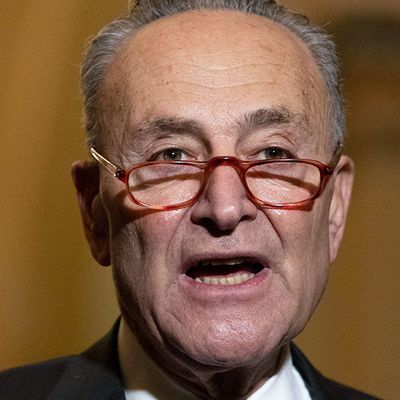
As the Treasury and Small Business Administration announce that the $349 billion in small-business loans that Congress authorized in its big $2.2 trillion coronavirus stimulus legislation last month has now all been obligated, a big partisan fight over additional funding has remained deadlocked at a time when unanimous action in both Houses would be necessary to break it, since lawmakers have long ago scattered to the winds. Republicans are insisting on just tossing another quarter-trillion into the existing loan pot (known as the Paycheck Protection Program), while Democrats want assurances that more of the money will go to businesses owned by disadvantaged entrepreneurs, along with additional funding for cash-strapped hospitals ($100 billion) and state and local governments ($150 billion), and perhaps additional food-stamp funding.
The atmosphere is a lot like the one that surrounded the initial coronavirus stimulus negotiations, with the GOP wanting to target emergency funds to businesses while Democrats looked after urgent public-sector needs. There’s plenty of need to go around: Even if Republicans went along with a second round of aid for state and local governments, it would amount to a fraction of the $500 billion in additional aid that the bipartisan National Governors Association has called for as urgently necessary, for states alone.
While congressional Republicans stamp their feet and argue that needs other than those of small businesses should be deferred to a future round of aid, Democrats are hanging tough on their demands, and to the annoyance of his ostensible allies on Capitol Hill, Treasury Secretary Steven Mnuchin is negotiating with Chuck Schumer directly, and with Nancy Pelosi indirectly. If a deal is reached to replenish the small-business fund on Democratic terms, some words of wrath will have to be eaten, including those of Mnuchin’s boss:
Right now one senator and one House member from either party can screw up a quick deal, so any sort of tantrum-pitching can cause repercussions. Yes, small businesses needing help are already screaming, but the painfully slow disbursement of the loans already approved is an indication that even a deal won’t turn on any spigots of money instantly. So the tense standoff and quiet talks both go on. With additional rescue measures sure to be proposed long after the current impasse has ended, we’d all better get used to it.






























